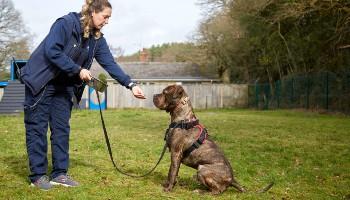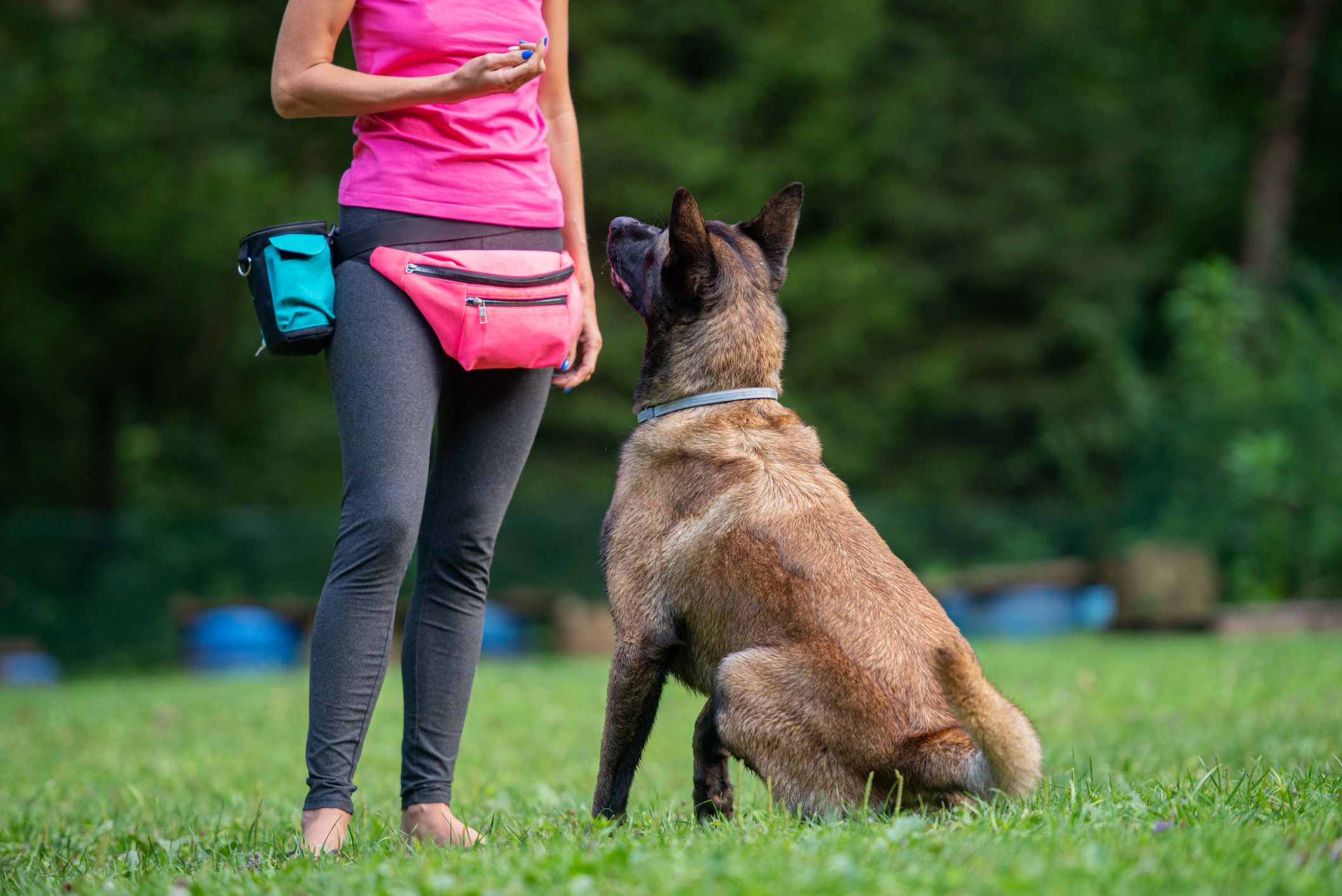A Step-by-Step Approach to Dog Training Success
The Ultimate Guide to Dog Training: Change Your Pet dog's Habits
Efficient dog training is important for cultivating an unified connection between pets and their proprietors. The ins and outs of canine actions and the implementation of organized training strategies play a vital function in this process. By comprehending the concepts of favorable reinforcement, uniformity, and socialization, animal owners can browse typical challenges that emerge during training. This overview not only aims to outfit you with the essential devices to transform your dog's habits but additionally welcomes you to discover how these fundamental concepts can cause a deeper link with your animal. What could be the primary step in this transformative journey?
Understanding Pet Habits
Recognizing pet behavior is crucial for efficient training and an unified partnership in between pets and their proprietors. A canine's actions is affected by a mix of genes, setting, and experiences. Dog training. Identifying these variables allows proprietors to customize their training approaches to fulfill the specific demands of their family pets
Pets connect largely via body movement, vocalizations, and face expressions. A wagging tail can indicate excitement or joy, while a put tail might signify anxiety or entry. Observing these hints allows proprietors to react appropriately, enhancing favorable habits and addressing negative ones efficiently.
Furthermore, recognizing the social framework of dogs can provide understandings into their actions. Pets are pack animals, and they grow in a structured setting. Establishing consistent regulations and clear borders can prevent complication and promote a complacency.
Moreover, acknowledging the natural reactions of canines, such as need to chase after or dig, is important. These reactions can be redirected with proper electrical outlets, such as play or exercise. By thoroughly recognizing these behavioral elements, proprietors can foster a favorable training experience, inevitably resulting in a well-adjusted and loyal canine buddy.
Essential Training Methods
Reliable dog training depends on a selection of important methods that can significantly enhance the knowing procedure for both the owner and the canine. One essential strategy is positive support, which includes gratifying preferable actions with treats, praise, or playtime. This technique motivates pet dogs to duplicate the actions that lead to positive outcomes, fostering a trusting relationship between the family pet and owner.
Another secret method is consistency in commands and expectations. Using the very same spoken cues and hand signals helps the canine understand what is required, reducing confusion and promoting quicker understanding. In addition, developing clear limits and guidelines is essential for efficient communication.
Socializing is additionally an essential element of training. Exposing pets to various atmospheres, individuals, and other pets helps them develop appropriate social skills and minimizes anxiety in unknown scenarios.
Finally, persistence and timing are important. Educating sessions must be regular but brief, guaranteeing that the canine remains involved and receptive. By using these essential techniques, proprietors can create a favorable and structured training experience that advertises etiquette and reinforces the bond with their canine companions.
Developing an Educating Arrange
Just how can a well-structured training routine boost a canine's learning experience? A training timetable supplies consistency, making sure that dogs get normal, concentrated direction. This predictability aids canines recognize what is expected of them, strengthening their learning and permitting far better retention of habits and commands.
When developing a training routine, it is important to consider the canine's age, type, and specific temperament. Young puppies may take advantage of much shorter, more frequent sessions, while grown-up pet dogs might prosper with longer, much less regular training durations. Integrating a variety of activities can likewise maintain the sessions involving, protecting against dullness and advertising excitement for knowing.
In addition, organizing training sessions at certain times of the day can assist solidify a routine. For example, pairing training with daily walks or playtime can produce a positive organization with discovering. It is additionally crucial to include time for reinforcement, such as deals with or appreciation, to compensate desired behaviors promptly.
Lastly, adaptability is key. While consistency is vital, being adaptable to the dog's state of mind or power level can enhance their discovering experience. A well-crafted training routine eventually lays the foundation for effective interaction and a stronger bond in between the pet and proprietor.
Typical Training Challenges
In spite of having a well-structured training routine, canine proprietors often encounter numerous obstacles throughout the training process. One common concern is incongruity in commands and signs. When multiple relative use various terms or tones, a pet dog may end up being overwhelmed, impeding its capacity to learn efficiently.
Another constant obstacle is distraction. Dog training. Dogs are normally curious creatures, and exterior stimulations such as other pets, noises, or people can divert their interest during training sessions. her explanation This needs owners go to this website to produce a regulated setting or gradually introduce distractions to enhance focus
Furthermore, varying energy degrees can affect training end results. High-energy dogs may struggle to clear up down and focus, while more easygoing types may require additional motivation to involve. Tailoring the training technique to fit the individual pet dog's character is vital for success.

Structure a Solid Bond
A strong bond in between a dog and its owner is necessary for effective training and total health. Dog training. This relationship fosters count on, which is vital for reliable interaction throughout the training procedure. When a canine feels safe and secure and connected to its proprietor, it is more probable to react positively to commands and cues
To build this bond, consistency is essential. Developing a routine that consists of routine feeding, exercise, and training sessions aids develop a feeling of stability. Additionally, favorable support strategies, such as deals with, appreciation, and play, strengthen wanted behaviors while enhancing the psychological connection.
Socialization is an additional vital aspect of bond-building. Revealing your pet to various atmospheres, individuals, and various other animals helps them really feel a lot more comfy and confident, boosting the bond with their owner. Taking part in tasks with each other, my sources such as walking, playing bring, or taking part in obedience training, promotes teamwork and common pleasure.
Conclusion

Comprehending canine actions is necessary for effective training and an unified relationship in between dogs and their owners.Efficient pet training relies on a range of vital strategies that can considerably improve the understanding procedure for both the owner and the pet.In spite of having a well-structured training schedule, canine owners usually encounter different obstacles throughout the training procedure.In conclusion, effective canine training depends on a comprehensive understanding of canine habits, the application of crucial techniques, and the establishment of a structured training schedule. By emphasizing favorable support and uniformity, pet dog owners can substantially improve their pet dogs' actions, inevitably ensuring a harmonious relationship and promoting the well-being of both the pet dog and its atmosphere.